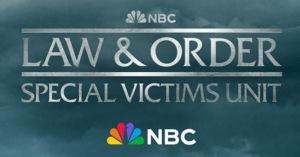Director Fred Dekker, who helmed the cult classics Night of the Creeps and Monster Squad before his career screeched to a halt with the failure of RoboCop 3, wrote on Facebook this week that nearly 25 years after its initial release, the film has found a citical voice that “acknowledges what I was trying to do.”
That voice is Salon’s John Semley, who wrote an article criticizing think pieces about how “prescient” the original RoboCop was, saying that the film failed to predict numerous potentially insidious aspects of modern corporate culture.
Videos by PopCulture.com
(The film is generally praised for accurately predicting the rise of private military contractors, the militarization of police, and the influence of corporate executives on government; Semley would add to that list seemingly-innocuous billionaires who don’t acknowledge they are engaging in politics while dumping huge amounts of money into their pet causes.)
In the franchise, Semley writes, the villains are too obviously evil for his tastes, and the fascism of the near-future dystopia is a little too distanced from the daily lives of Americans to feel “real” to viewers, who can therefore distance themselves comfortably from the conflict and dismiss it as science-fiction.
“Despite the film’s arch-cartoonishness and family-friendly feel (it pares back the blood and gore for scenes of Robo battling Japanese ninja androids and whooshing around in a jetpack), RoboCop 3 has little in the way of the original’s beloved ‘tongue-in-cheek, we’re-just-kiddin’ quality,’” Semley wrote. “It’s fueled by a more intersectional, revolutionary energy, in which everyday people band together to defend their retirement funds and stand up for their communities. It’s the sort of story that might actually trouble institutional liberals and do-gooder philanthrocapitalists, one in which a legitimate #Resistance rises up and asserts itself, with or without the help of a reprogrammed robotic police officer. It’s a message that, one might hope, will one day too be trumped up and over-hyped as acute and totally visionary.”
“In 1993, RoboCop 3 was eviscerated by critics and largely ignored by audiences (except in Japan). It’s no secret the movie basically killed my directing career,” Dekker wrote. “But unlike many directors, I chose to read the reviews, hoping to learn something about what I did wrong. Sadly, infinite variations on ‘It sucked’ were hardly what one might call constructive criticism. Cut to now: almost 25 years later. And here, for the first time, a journalist acknowledges what I was trying to do. [Writer] Frank Miller and I weren’t just snidely commenting on an America obsessed with corporate profit regardless of the human toll — we wanted to present characters actually fighting back; to do something about it.”
Miller, a legendary comic book writer, would go on to use similar revolutionary themes and iconography in DK2: The Dark Knight Strikes Again, a comic that began its production pre-9/11 and was completed after the terrorist attacks in New York and Washington. Miller, a New York resident, witnessed the events of that day up close and has written and spoken extensively about it.
Dekker would work only sporadically in Hollywood after RoboCop 3‘s failure, although he is credited as a writer on Shane Black’s forthcoming The Predator.
Photo Credit: Orion Pictures









